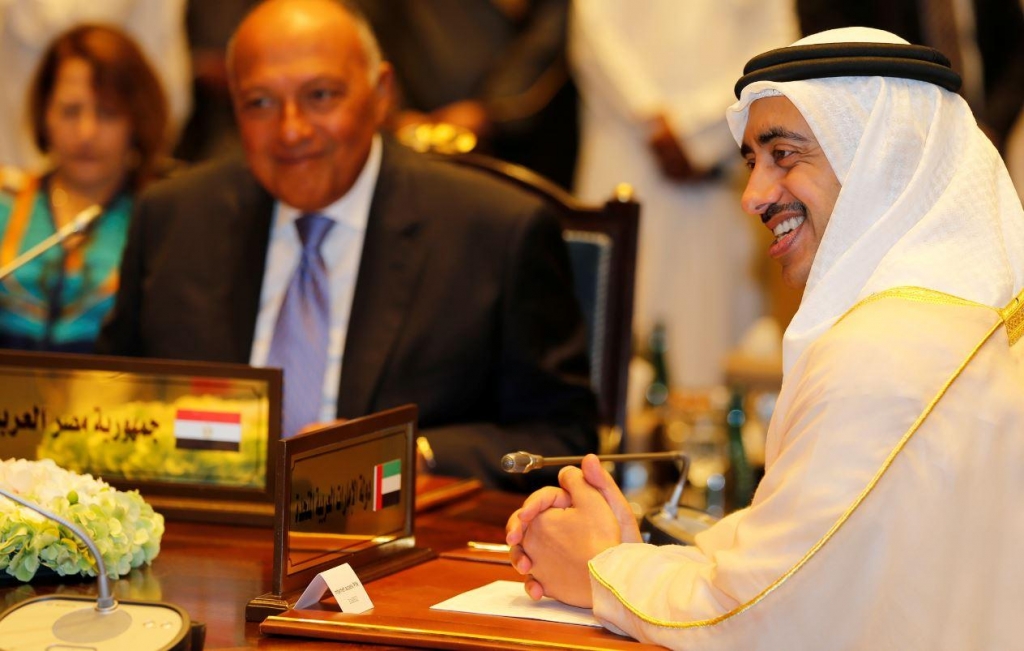Four states ‘ready for dialogue with Qatar with the condition that it announces its sincere willingness to stop funding terrorism’, says Bahrain’s foreign minister
The four Arab states of Saudi Arabia, Egypt, the United Arab Emirates (UAE) and Bahrain are reportedly set to consider fresh economic sanctions on Qatar at a meeting in Manama, Bahrain’s capital.
The foreign ministers of the four countries are “expected to impose sanctions that will gradually affect the Qatari economy,” al-Hayat newspaper said, citing unnamed Gulf sources.
However, in a conciliatory move, Bahrain’s foreign minister said the countries involved in the boycott were open to fresh talks with Qatar – if the country agreed to certain terms.
“The four countries are ready for dialogue with Qatar with the condition that it announces its sincere willingness to stop funding terrorism and extremism and its commitment to not interfere in other countries’ foreign affairs and respond to the 13 demands,” Sheikh Khalid bin Ahmed al-Khalifa, Bahrain’s foreign minister, said.
His comments were made during a TV news conference in Manama after meeting his counterparts to discuss the boycott.
“In the two-day meeting, the four countries will press Qatar to comply with their demands, which include stopping interference in their internal affairs,” Egypt”s government said in a statement.
The Gulf Times reported that the talks were part of the continued consultation between the four Arab states to review their position since the blockade on Qatar began on 5 July.
King Hamad bin al-Khalifa of Bahrain praised cooperation between the four territories in the battle against terrorism, according to BNA, Bahrain’s state news agency.
Kuwait, the United States and Turkey have been involved in diplomatic efforts to mediate between Saudi Arabia and Qatar, but this has resulted in little progress.
Air and sea links to Doha have been cut by the four Arab states. Qatar has been receiving fresh produce from Turkey and Iran, while Oman has provided alternative ports to the UAE.
A further 18 groups and individuals reportedly supported by Qatar have been added to a list of “terrorist” supporters by the four Arab countries, according to Reuters.
Qatar has hit back, calling the accusations “baseless”. The Emir of Qatar, Sheikh Tamim Hamad al-Thani, said he was keen to discuss the crisis which is the worst between Arab states for many years. “We are open to dialogue to resolve the outstanding problems [so long as Qatar’s] sovereignty is respected,” he said in his first televised appearance since the crisis began.
The reason behind the boycott was about “outsourcing our foreign policy so that decisions are not made in Qatar, and that is something that will never be acceptable,” Sheikh al-Thani told AFP.
Ali Shareef al-Emadi, Qatar’s finance minister, called for the blockade to end, saying that his country had continued supplying 40 per cent of the UAE’s daily liquid natural gas consumption.


